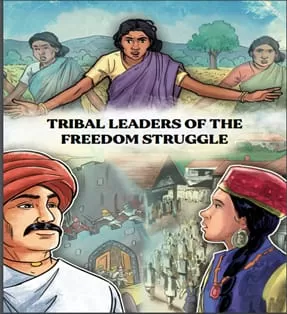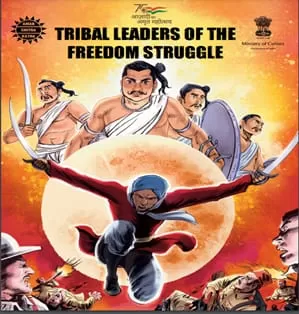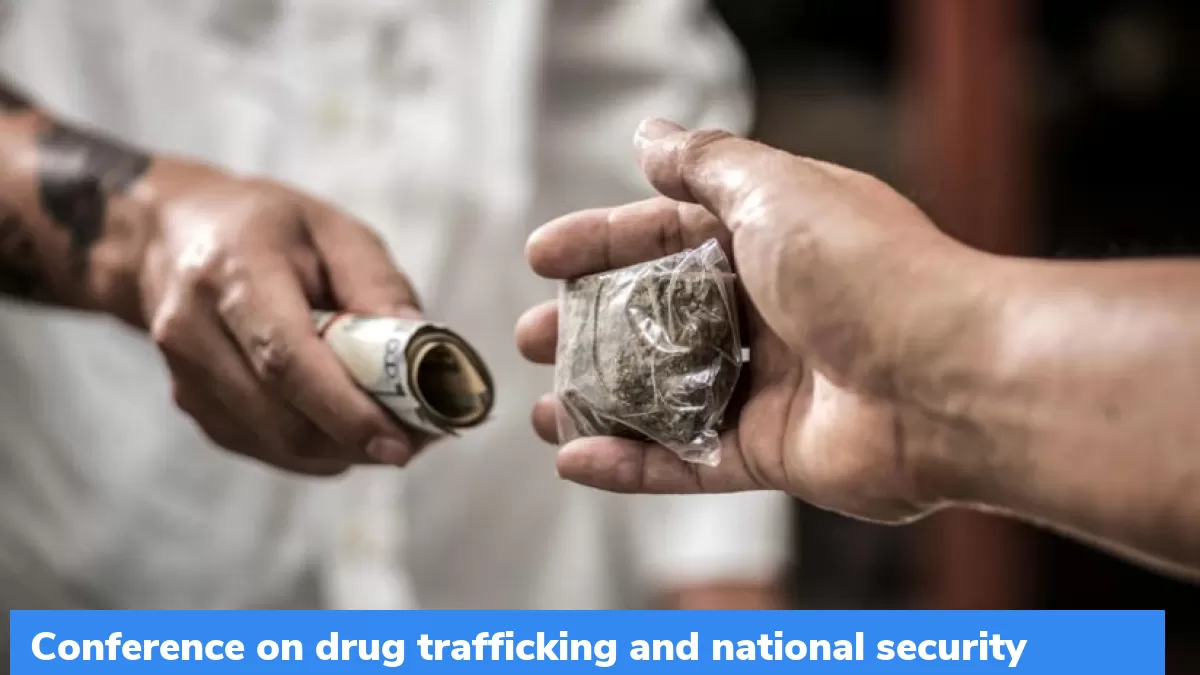Ministry of Culture releases the third Comic book on stories of 20 Tribal Freedom Fighters
SEO Friendly Content Writer: Ministry of Culture has released the third Comic book on stories of 20 Tribal Freedom Fighters on 2nd August at Tiranga Utsav celebration in New Delhi.
On the occasion, Union Minister for Home affairs and Cooperation Shri Amit Shah, Union Minister for Culture, Shri G. Kishan Reddy, Minister of State for Parliamentary Affairs & Culture, Shri Arjun Ram Meghwal, and Minister of State for External Affairs, Smt Meenakshi Lekhi were present. This collection of stories recalls the sacrifices of some of the bravest men and women who inspired their tribes and gave up their lives to fight British rule
Ministry of Culture as a part of Azadi Ka Amrit Mahotsav (AKM) has released pictorial books on 75 freedom fighters in collaboration with Amar Chitra Katha (ACK) to create awareness among the youth and children about the supreme sacrifice and patriotism of our lesser-known heroes of freedom struggle. The first ACK Comic book on India’s 20 Women Unsung Heroes and the Second Comic book on stories of 15 Women elected to the Constituent Assembly has been released earlier.
The tribal freedom fighters, who were unsung heroes of freedom struggle, and whose stories have been included are as follows:
Read Also: National Conference on ‘Drug Trafficking and National Security’ was held
Tilka Majhi rebelled against the atrocities of the British East India Company. He mobilized the Pahadia tribe to which he belonged and raided the Company treasury. He was hanged.
Thalakkal Chanthu of the Kurichiyar tribe was an invaluable part of Pazhassi Raja’s war against the East India Company. He was hanged.
iii Budhu Bhagat of the Oraon tribe was shot down in one of his many encounters with the British, along with his brother, seven sons, and 150 men from his tribe.
Tirot Singh, a Khasi chief, realized the duplicity of the British and waged war against them. He was captured, tortured, and imprisoned. He died in prison.
Iv Raghoji Bhangre belonged to the Mahadeo Koli tribe. He revolted against the British and continued his struggle even though his mother was imprisoned. He was captured and hanged.
Sidhu and Kanhu Murmu from the Santhal community revolted against the British and their stooges. They led the Santhal in the Hul rebellion. Both were betrayed, caught, and hanged.
Rendo Manjhi and Chakra Bisoi of the Khond tribe objected to the British interfering in their customs. Rendo was caught and hanged while Chakra Bisoi became a fugitive and died in hiding.
The Indian Uprising in Meerut had begun. Nilambar and Pitamber who belonged to the Bhogta clan of the Kharwar tribe were inspired to revolt and led their people to rise up against British oppression. They were both captured and hanged.
Read Also: Enforcement of Minimum Wages by Govt. ( Article with press comment by sahidishakioor)
Ramji Gond of the Gond tribe rose against the feudal system by which wealthy landlords oppressed the poor with the support of the British. He was caught and hanged,
Telanga Kharia of the Kharia tribe refused to accept the tax system of the British and their governance. He insisted that they follow their traditional method of self-governance and organized raids on the treasury. He was betrayed and shot dead.
Tantiya Bhil, known as the Robin Hood of the Central Provinces, robbed trains carrying British wealth and distributed it among his tribe, the Bhils. He was trapped and hanged.
Major Paona Brajabasi of Manipur, fought to defend the kingdom of Manipur. He was the hero of the Anglo-Manipur war. He fought like a lion but was overpowered and beheaded.
Birsa Munda, of the Munda tribe, became a legend in his opposition to the British. He led the Mundas in a series of confrontations with them. He was caught and imprisoned and according to British records, died of cholera. He was 25 years old when he died.
Matmur Jamoh of the Adi tribe of Arunachal Pradesh, rebelled against the arrogance of the British. He and his companions surrendered to the British as their villages were being burnt. They were sent to the Cellular Jail and died there.
Read Also: Initiatives taken to create a conducive business environment
Tana Bhagat of the Oraon tribe was inspired by a divine vision to preach to his people and make them aware of the exploitation of their British overlords. He was caught and tortured severely. He was released, a broken man, and died subsequently.
Malati Mem of the Tea-garden community was inspired to join Mahatma Gandhi’s satyagraha movement. She fought against the British monopoly over opium and educated her people about the dangers of opium addiction. During an encounter with the police, she was shot dead.
Laxman Naik of the Bhuyan tribe, was also inspired by Gandhi and campaigned extensively to get tribes to join the freedom movement. The British framed him for the killing of a friend and he was hanged to death.
Helen Lepcha of the Lepcha tribe, was an ardent follower of Mahatma Gandhi. Her influence over her people made the British restless. She was shot at, imprisoned and hounded but she never lost courage. In 1941 she helped Netaji Subhas Chandra Bose escape from house arrest and travel to Germany. She was awarded the Tamra Patra for her invaluable contribution to the freedom struggle.
Pulimaya Devi Podar heard Gandhi when she was in school and wanted to join the freedom struggle immediately. Despite stiff opposition from her family she joined the movement after her studies and encouraged women to join her. She was imprisoned for her participation in protests. After independence, she continued to serve her people and was awarded the title of ‘Swatantra Sainani‘.





